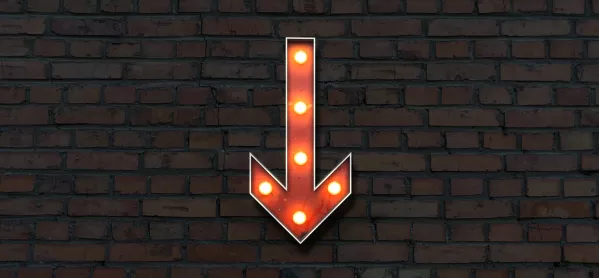Students from state schools were almost twice as likely as their counterparts in private schools to be downgraded by the moderation process overseen by the Scottish Qualifications Authority (SQA) this year after exams were cancelled.
Ultimately, a Scottish government U-turn led to grades being determined by teachers’ estimates after the furore over the results produced by the moderation process. Only now, however, has the disparity between moderated grades in the state and independent sectors become clear.
The figures have been released to Tes Scotland under freedom of information legislation. They show that 25 per cent of entries from state schools at National 5, Higher and Advanced Higher were downgraded, against 12.9 per cent from independent schools. Of the 463,615 entries from state schools, 116,091 were downgraded; of the 36,748 entries from independent schools, 4,755 were downgraded.
SQA results fiasco: 17 key findings
Also this week: National 5 exams cancelled amid coronavirus fears
Opinion: ‘Now is the time to be bold on educational inequality’
SQA results day 2020: Analysis of SQA’s methodology
The figures also show that, while upgrades were generally far less likely than downgrades, they were proportionally more common in the state sector (1.8 per cent of entries, of 8,576 in total) than in the independent sector (0.8 per cent of entries, or 291).
Barry Black, a postgraduate education researcher at the University of Glasgow, said: “It is interesting that the SQA said they did not hold this data at the time, but it has now become available.
“It tells a tale that many predicted at the time.”
He added: “That private schools had half the proportion of downgrades as state schools is a strong illustration of just how unfair this moderation system was.
“It is also illustrative of wider socioeconomic inequalities in our education system in Scotland.”
It was already known that teacher estimates of students’ Higher marks in the most deprived parts of Scotland were more likely than those in the most affluent areas to be downgraded by the SQA moderation process, a trend that acted as a catalyst for the angry response to the results initially published in August.
Much of the debate in the days that followed centred around how the SQA’s algorithm was more likely to skew results in favour of wealthier students.
This week in the Scottish Parliament, when announcing plans for this year’s SQA exams and also the findings of the Priestley review into August’s results debacle, education secretary John Swinney said: “I want to be very clear to Parliament, given the controversies of the last awards process, what will not happen. First and foremost, awards will not be given - or taken away - on the basis of a statistical model nor on the basis of a school’s past performance.
“There will be no algorithm.”
Another Tes Scotland FOI request revealed that parents, teachers, MSPs and school students themselves had written to Mr Swinney and the first minister Nicola Sturgeon highlighting their concerns about the way results were going to be determined.
One student - who wrote to Mr Swinney in April - said they felt making a judgement on a student based “on the generalised attainment of a school is extremely unfair”. They pointed out that “a student attending a school with higher levels of academia may be disproportionately advantaged by this choice…without them necessarily having worked for it”.





